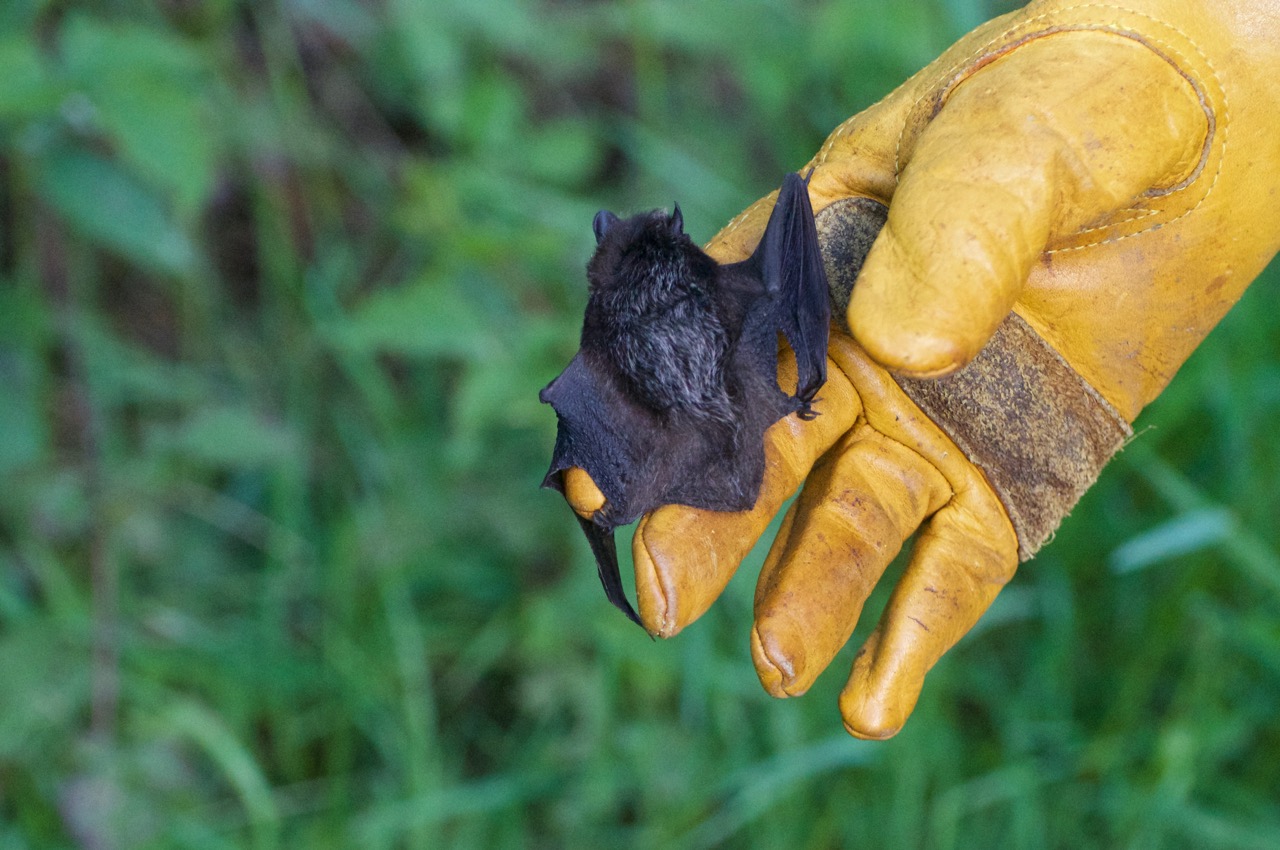
Spring came early to Humboldt County this year, but it’s a kind of Spring that feels a lot like winter. Wet, windy and cold. As a result, this year we are admitting more storm-tossed and struggling adults later in the year than usual.
Such was the case for an adult male Silver-haired bat (Lasionycteris noctivagans) that was found on the ground struggling the last morning of April near Patrick’s Point State Park. Cold and lethargic, we don’t know why this bat was on the ground, but we do know that his struggle was real. He was unable to get himself out of harm’s way.
While it’s certainly true that most species of bat, and many other mammals, that we might encounter potentially are suffering from rabies, statistically it is very unlikely. In bats, rabies occurs in less than one percent of their population. Still caution is necessary. Untreated, rabies is fatal. If a person has been bitten by a bat, or may have been bitten by a bat, having the bat tested is critical! If you are ever bitten by a wild animal such as a fox, skunk, weasel, or bat, immediately seek professional health care. Rabies is transmitted by bite. If you are ever bitten by a bat, or suspect that someone else, such as child, could have been bitten, the bat must be tested for the disease. If you must handle a sick bat, always wear protective gloves, such as leather work gloves.
This bat was lucky. He did not have any of the symptoms of rabies, or any other obvious injuries. He had bitten no one. In relatively good body condition, soon the bat was alert and flying. A warm safe place to regroup seemed to be all that the silvery bat needed.
An uncharacteristically stormy and windy May delayed release – we wanted to give him the best chance out of the box. So after nine days at last we returned to this handsome fellow to his home in Trinidad.
 Lifting the bat from our transport box to place in a nearby tree: these gloves don’t just protect us – they also protect the bat. If he were to bite one of us, proper human safety demands that we have him tested for rabies, a procedure that requires his death.
Lifting the bat from our transport box to place in a nearby tree: these gloves don’t just protect us – they also protect the bat. If he were to bite one of us, proper human safety demands that we have him tested for rabies, a procedure that requires his death.
 On the way to a stable branch, the bat jumped from staff’s hands, preferring this bit of new growth spruce; choosing his own destiny, like any self-owned, self-willed, freedom loving wild thing would do…
On the way to a stable branch, the bat jumped from staff’s hands, preferring this bit of new growth spruce; choosing his own destiny, like any self-owned, self-willed, freedom loving wild thing would do…
 Once adjusted to his freedom, he exercised it and his wings.
Once adjusted to his freedom, he exercised it and his wings.
 Away.
Away.
This bat, like all of our patients, had his own needs in care: from considerations of his natural history and diet, to likely causes of his initial problem, to human safety concerns for handling. Every animal we care for has needs that must be met. There are few blanket answers. Most injured and orphaned wild animals never receive treatment, because they are not found. For those animals that are found, it’s critical that they get the best care possible. That’s what Humboldt Wildlife Care Center is here to do. Your support saved this bat’s life. Your support directly saves the lives of hundreds of wild animals each year, and indirectly saves thousands more. Thank you!! [Donate Today!]

Photos: Laura Corsiglia/ Bird Ally X

